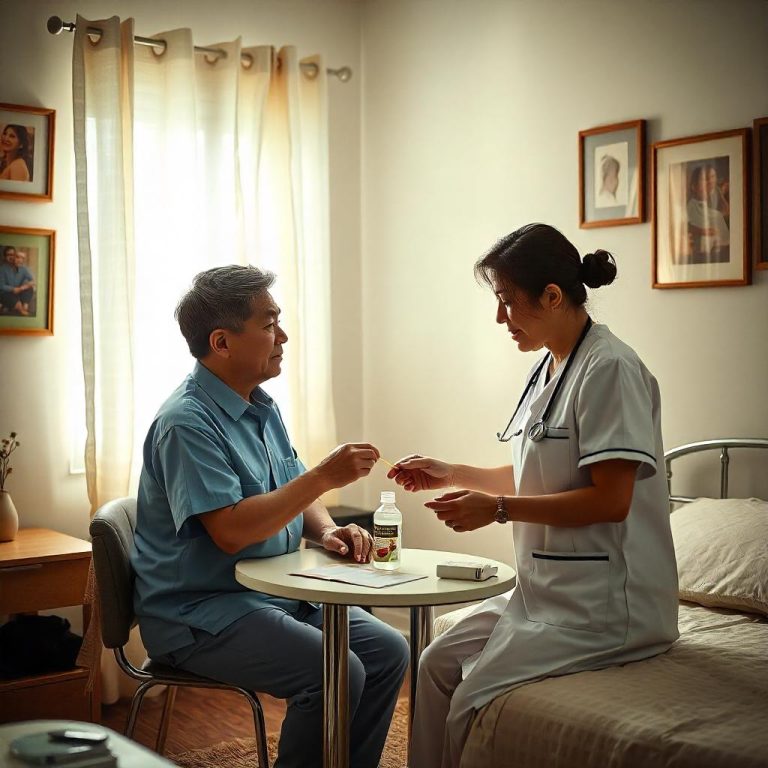As people age, their healthcare and daily living needs become more complex and unique. Personalized senior care solutions are designed to meet the diverse needs of older adults, ensuring they receive the appropriate care and support tailored to their specific physical, emotional, and social requirements. These solutions are crucial for improving the quality of life, promoting independence, and fostering dignity as seniors navigate the challenges associated with aging.
What Are Personalized Senior Care Solutions?
Personalized senior care solutions refer to a customized approach to elder care that takes into account the individual’s medical conditions, personal preferences, and lifestyle needs. Unlike one-size-fits-all approaches, personalized care plans consider factors such as cognitive abilities, physical health, family dynamics, and social engagement, with the goal of delivering the most effective and compassionate care.
These solutions can be provided in various settings, including at home, in assisted living facilities, or in specialized care units. Personalized care addresses the senior’s evolving needs, whether they are related to physical mobility, mental health, nutrition, or social connections, and evolves as these needs change over time.
Key Elements of Personalized Senior Care Solutions
- Comprehensive Health AssessmentsA thorough health assessment is the foundation of personalized senior care. This includes an evaluation of the senior’s physical and mental health, any chronic conditions they may have, medications they are taking, and their ability to perform daily tasks. Regular check-ups with healthcare providers are essential to monitor health changes, adjust treatments, and ensure the care plan remains aligned with the senior’s evolving needs.
- Customized Care PlansA customized care plan is developed based on the individual’s needs and preferences. This plan may involve assistance with activities of daily living (ADLs) such as dressing, bathing, grooming, and meal preparation, as well as medical support for managing chronic conditions, medication administration, and physical or occupational therapy. These plans are flexible and updated regularly to reflect changes in health and abilities.
- In-Home Care ServicesFor seniors who wish to remain in their homes, in-home care services offer personalized solutions that include assistance with daily tasks, companionship, and medical support. Caregivers, whether professional or family members, can help seniors maintain independence in a familiar environment. In-home care may also involve skilled nursing services, physical therapy, and social engagement activities designed to promote overall well-being.
- Memory and Cognitive SupportMany seniors experience cognitive decline, including conditions such as Alzheimer’s disease and dementia. Personalized senior care solutions include memory care services tailored to the specific stage and severity of cognitive impairment. This may involve creating structured routines, cognitive stimulation activities, and personalized communication strategies to reduce confusion and anxiety, as well as ensuring a safe and supportive environment.
- Personalized Nutrition PlansA balanced diet is essential for maintaining health in later years. Personalized senior care solutions take into account any dietary restrictions, allergies, or medical conditions like diabetes or hypertension when planning meals. Seniors may benefit from customized meal plans that meet their nutritional needs and preferences, ensuring they receive the right balance of vitamins, minerals, and calories. In some cases, a nutritionist may be consulted to help create a plan that addresses both health concerns and taste preferences.
- Social Engagement and Emotional SupportIsolation can lead to feelings of loneliness and depression in seniors. Personalized care solutions encourage social engagement through activities that promote interaction with family, friends, and the community. This may include arranging visits, coordinating participation in group activities, or setting up virtual connections for remote communication. Additionally, emotional support from therapists, counselors, or support groups can help seniors cope with the challenges of aging, including the emotional impact of loss and transition.
- Family Involvement and Caregiver SupportFamily members play a critical role in the care of seniors. Personalized care solutions include involving family in the care process, whether by keeping them informed of the senior’s progress or helping them navigate caregiving responsibilities. Caregiver support, such as respite care services or counseling, can help prevent caregiver burnout and ensure that families are able to provide the best care possible without neglecting their own well-being.
- End-of-Life and Palliative CareAs seniors approach the end of life, personalized care solutions may also involve palliative care, focusing on comfort and quality of life rather than curative treatments. This care plan is designed to manage pain, address emotional and spiritual needs, and support the senior in making decisions about their care. Advance directives, such as living wills and power of attorney, should be discussed with the senior to ensure that their wishes are respected.
Benefits of Personalized Senior Care Solutions
- Improved Quality of Life: By tailoring care to the individual, seniors receive support that enhances their independence, reduces discomfort, and promotes mental well-being.
- Increased Comfort and Familiarity: Personalized care often takes place in familiar settings, which can make seniors feel more at ease and reduce stress.
- Enhanced Safety and Health Management: With a customized care plan, seniors are better supported in managing chronic conditions, medication, and personal health, minimizing risks and complications.
- Emotional Fulfillment: By fostering social connections and addressing emotional needs, seniors are less likely to feel isolated or depressed, promoting mental and emotional health.
Implementing Personalized Senior Care
To effectively implement personalized senior care solutions, it is essential to have a team of healthcare professionals, caregivers, and family members working together. Regular communication, flexibility, and a commitment to the senior’s needs are crucial for the success of the care plan. The plan should be updated as necessary, reflecting changes in health, preferences, and abilities.
Personalized senior care solutions ensure that seniors are treated with respect, dignity, and compassion, allowing them to live their later years in the best possible way. Whether the care is provided at home, in a specialized facility, or in collaboration with a network of healthcare providers, the focus is always on the individual’s unique needs and goals.






